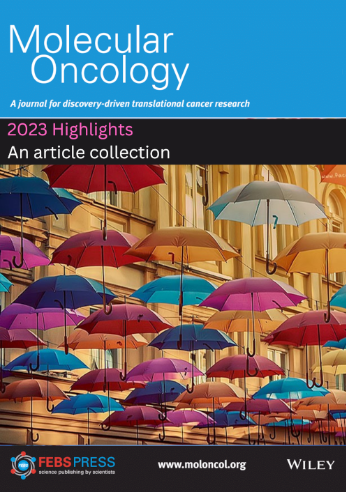代谢重编程:衰老和肿瘤发生之间的桥梁
IF 5
2区 医学
Q1 ONCOLOGY
引用次数: 7
摘要
年龄增长是癌症发展的最大风险因素,超过60%的癌症发生在60岁及以上的人群中。然而,衰老和肿瘤发生是如何交织在一起的,人们知之甚少,这是一个有重大争议的问题。代谢变化是衰老和肿瘤发生的标志。衰老的有害后果包括细胞功能失调,代谢副产物和废物分子在循环和组织内的积累,以及阻碍血液流动和氧合的结缔组织变硬。总的来说,这些年龄驱动的变化导致特定组织中不同细胞类型的代谢重编程,显著影响其细胞功能。在此,我们提出了衰老过程中发生的代谢变化有助于为肿瘤发生创造有利环境的观点。我们回顾了衰老过程中发生的代谢变化的相似之处,以及这些变化如何作为适应机制发挥作用,使恶性表型以细胞自主的方式发展,以及作为抑制免疫监视的机制,共同为癌症的茁壮成长创造了完美的环境。因此,针对随着年龄增长而发生的代谢重编程的抗衰老治疗策略可能为预防癌症的发生和/或改善对标准护理抗癌治疗的反应提供新的机会。本文章由计算机程序翻译,如有差异,请以英文原文为准。
Metabolic reprogramming: a bridge between aging and tumorigenesis
Aging is the most robust risk factor for cancer development, with more than 60% of cancers occurring in those aged 60 and above. However, how aging and tumorigenesis are intertwined is poorly understood and a matter of significant debate. Metabolic changes are hallmarks of both aging and tumorigenesis. The deleterious consequences of aging include dysfunctional cellular processes, the build‐up of metabolic byproducts and waste molecules in circulation and within tissues, and stiffer connective tissues that impede blood flow and oxygenation. Collectively, these age‐driven changes lead to metabolic reprogramming in different cell types of a given tissue that significantly affects their cellular functions. Here, we put forward the idea that metabolic changes that happen during aging help create a favorable environment for tumorigenesis. We review parallels in metabolic changes that happen during aging and how these changes function both as adaptive mechanisms that enable the development of malignant phenotypes in a cell‐autonomous manner and as mechanisms that suppress immune surveillance, collectively creating the perfect environment for cancers to thrive. Hence, antiaging therapeutic strategies that target the metabolic reprogramming that occurs as we age might provide new opportunities to prevent cancer initiation and/or improve responses to standard‐of‐care anticancer therapies.
求助全文
通过发布文献求助,成功后即可免费获取论文全文。
去求助
来源期刊

Molecular Oncology
医学-肿瘤学
CiteScore
12.60
自引率
1.50%
发文量
203
审稿时长
6-12 weeks
期刊介绍:
Molecular Oncology highlights new discoveries, approaches, and technical developments, in basic, clinical and discovery-driven translational cancer research. It publishes research articles, reviews (by invitation only), and timely science policy articles.
The journal is now fully Open Access with all articles published over the past 10 years freely available.
 求助内容:
求助内容: 应助结果提醒方式:
应助结果提醒方式:


